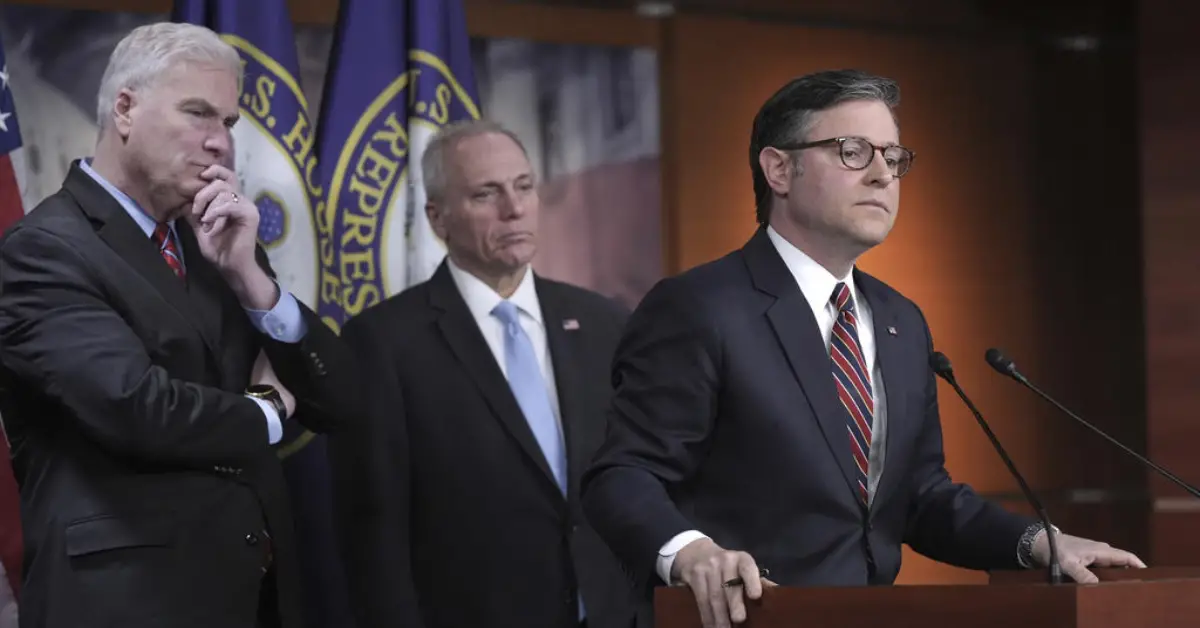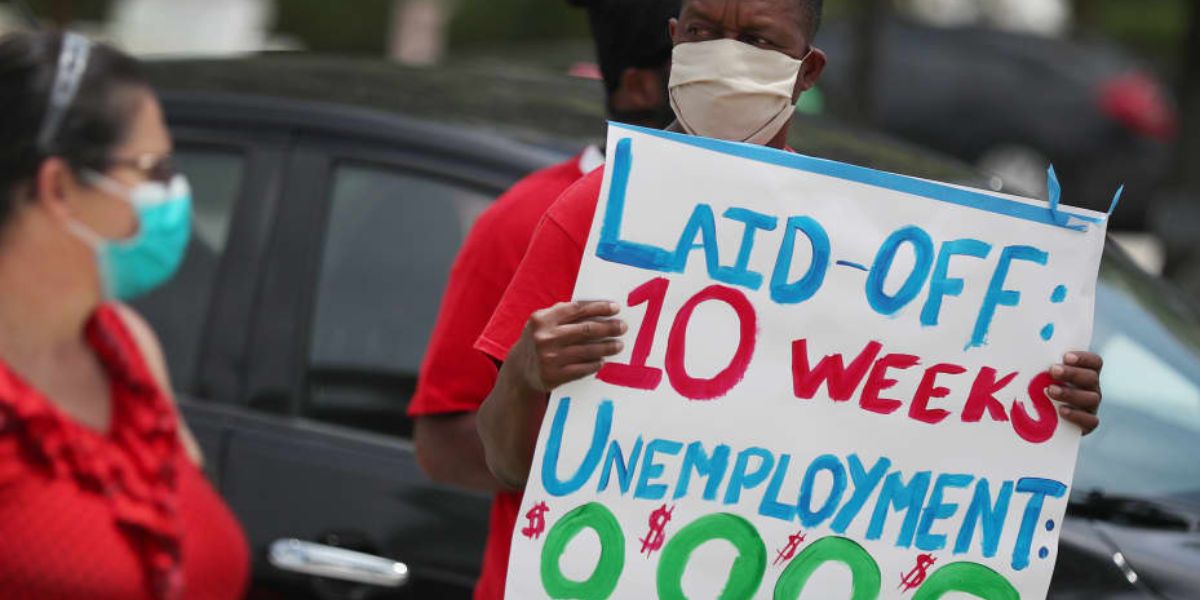House GOP unveiled new tax breaks under former President Donald Trump’s administration aimed at providing relief to Americans on tips, overtime, and car loans. These proposed tax cuts are intended to make life easier for workers in industries where tips are a significant part of their earnings, people working overtime, and those who rely on car loans for commuting and transportation.
However, while the intent behind these tax breaks seems beneficial, the long-term costs could strain federal revenues. Critics are raising concerns about whether the economic benefits of these cuts will outweigh the financial burden that they may create in the coming years.
The Background Behind These Tax Cuts
The idea behind these tax cuts stems from the recognition that a significant number of workers in the United States rely on tips to make ends meet. Industries such as hospitality, food service, and entertainment often pay employees below the federal minimum wage, with the understanding that tips will make up the difference.
In addition, many workers put in long hours of overtime, especially in sectors like retail, healthcare, and logistics. As for car loans, with the rising cost of living and the increasing price of new cars, many working-class individuals have to take out loans to afford a reliable mode of transportation.
These tax breaks, according to the GOP, aim to ease the financial burden on these workers by providing them with more disposable income. For workers relying on tips, the GOP proposes that tips will no longer be subject to the same high taxes, making it easier for them to keep more of what they earn.
Overtime pay would also become more tax-friendly, allowing those who put in extra hours to benefit from tax cuts. Finally, for car loan borrowers, interest payments on car loans would be deductible from taxable income, helping lower the cost of owning and maintaining a vehicle.
The Specifics of the Tax Cuts
- Tips Tax Cut: Under the proposed changes, workers who earn tips will be able to keep more of their earnings. The GOP suggests that by reducing the tax rate on tips, workers will have more disposable income at the end of the month. This change is expected to benefit those working in industries like hospitality and service, where tips make up a significant portion of the workers’ income.
- Overtime Pay Relief: Another part of the proposal addresses the taxation of overtime pay. Under the new rules, employees who work overtime hours will have a portion of their earnings from overtime exempted from taxes. This move is expected to incentivize employers to offer more overtime work, which can lead to a boost in the incomes of many blue-collar and hourly workers.
- Car Loan Interest Deduction: For workers who take out car loans to finance their vehicles, the GOP proposal includes a tax break that would allow the interest paid on car loans to be deducted from taxable income. This would be particularly helpful for middle-income earners who rely on personal vehicles for commuting but find it difficult to make ends meet due to high car loan interest rates.
The Potential Benefits
The main goal behind these tax cuts is to help working Americans who are often left behind when it comes to tax relief. By making it easier for individuals in certain industries to keep more of their earnings, these measures could provide financial relief to millions of workers. For example, service workers who rely on tips often face significant financial strain due to the variability of their incomes. This proposal could bring some stability to those workers by providing them with a guaranteed tax break on their tips.
Similarly, workers who are required to work overtime will have more incentive to take on extra hours if they know that a portion of their overtime pay will not be taxed as heavily. This could lead to an increase in productivity and earnings for many sectors where overtime is common, such as retail and healthcare.
Finally, the car loan deduction would be a welcome relief for many workers who spend a significant portion of their income on car payments. As the price of cars continues to rise, particularly with the shift toward electric vehicles, many people rely on loans to purchase a car. By making it easier to deduct car loan interest from taxable income, the GOP aims to reduce the financial burden of car ownership.
The Drawbacks and Concerns
Despite the potential benefits, these tax cuts come with a set of concerns. Critics argue that the plan could lead to significant losses in federal tax revenue. While helping workers in need is a noble goal, it is essential to remember that tax cuts result in a reduction of government funds. In an already strained federal budget, this could lead to cuts in other areas such as education, healthcare, and infrastructure.

Additionally, there is concern that these cuts may not be as beneficial as they seem at first glance. For example, many workers who would benefit from the tip tax cut might already be receiving relatively low wages, and the reduction in tip taxes might not make a significant difference in their overall financial stability. Similarly, overtime pay tax cuts might not benefit workers in all sectors, especially if companies choose not to offer overtime hours or if workers are already struggling to work long hours.
The car loan interest deduction, while beneficial to many, could also disproportionately benefit higher-income individuals who are more likely to own newer, more expensive vehicles. This could result in an inequitable distribution of the tax breaks, with wealthier individuals receiving the majority of the benefit while lower-income workers see only marginal improvements.
The Long-Term Costs
One of the biggest concerns raised by critics is the long-term fiscal impact of these tax cuts. In the short term, the tax cuts could boost consumer spending, which could help stimulate economic growth. However, in the long term, the reduction in federal revenue could create budget deficits, leading to increased national debt. The U.S. government could be forced to cut spending on vital programs or increase taxes elsewhere to make up for the lost revenue.
Moreover, critics argue that these tax cuts may not be a sustainable solution to the issues faced by workers in industries that rely on tips, overtime, and car loans. Structural reforms, such as raising the federal minimum wage and improving access to affordable healthcare and education, may be more effective in addressing the root causes of financial instability for low- and middle-income workers.
Conclusion
While the GOP’s proposed tax cuts on tips, overtime pay, and car loan interest may provide immediate relief for some working Americans, the long-term costs could outweigh the benefits. The government must carefully consider the broader economic implications of these cuts and balance the desire to help workers with the need to maintain a healthy federal budget. It is important to ensure that tax cuts do not disproportionately benefit the wealthy or contribute to an unsustainable rise in national debt.
As the conversation continues around these tax proposals, lawmakers will need to weigh the benefits of helping working Americans with the broader economic impact of such measures. It will be essential to find solutions that are sustainable and that address the root causes of income inequality, rather than offering short-term fixes that may not have the intended effect.
Disclaimer: This article has been meticulously fact-checked by our team to ensure accuracy and uphold transparency. We strive to deliver trustworthy and dependable content to our readers.




